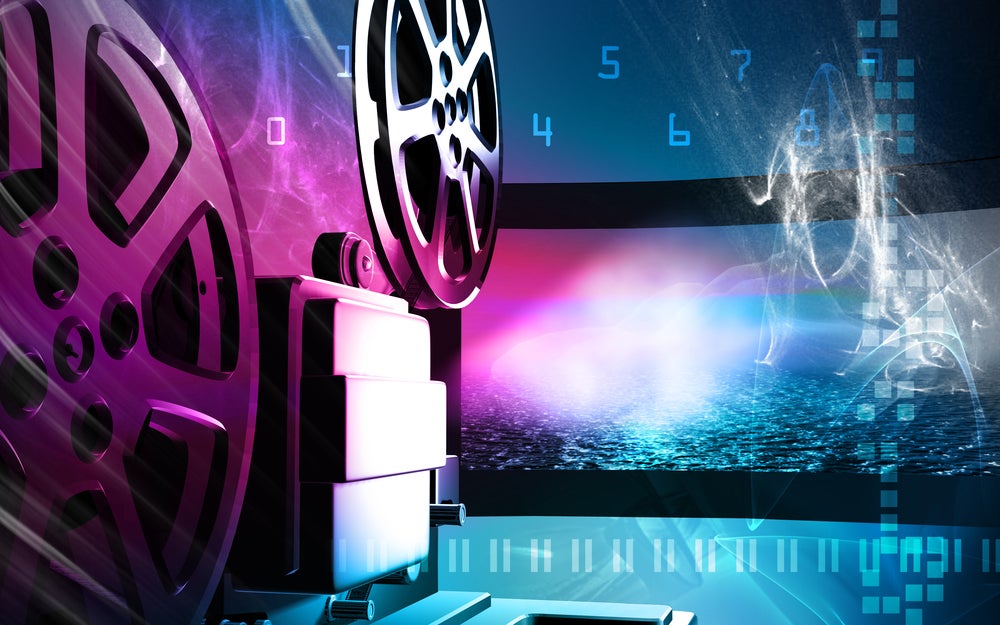
The usual host of awards including best screenplay and best visual effects came up at the 2019 Oscars last night. While AI in the movie industry is unlikely to be writing award-winning scripts anytime soon, it is already at work behind the scenes.
CGI along with AI in the movie industry can create photorealistic scenes, but it’s difficult to animate those images. There is a risk of falling into the ‘uncanny valley’, where the sheer accuracy or perfection in visuals makes the audience feel uncomfortable. AI can’t compete with an actor in the subtle minutiae of human expression.

Access deeper industry intelligence
Experience unmatched clarity with a single platform that combines unique data, AI, and human expertise.
AI can help creatives sift through topics across social media to find popular themes. It can also help choose scripts with potential. But any AI system is limited by the data it’s fed and the prediction algorithms it is programmed with.
Originality is the golden-ticket to an Oscar, but predictability is almost its opposite, so is there any room in the movie industry for AI?
AI in scriptwriting
AI in the movie industry is not yet capable of writing scripts, or good scripts at least. An AI programme wrote a terrible love song around Valentine’s Day with lyrics like, “I ask the curtains, it wasn’t fake”, “drug away like a eat this time”.
The programme confused ideas and language. It felt like it could almost make sense but somehow didn’t. Creativity is the same elusive quality as intelligence, which all AI strives for.

US Tariffs are shifting - will you react or anticipate?
Don’t let policy changes catch you off guard. Stay proactive with real-time data and expert analysis.
By GlobalDataBut in spite of the limitations, film companies are using data science to gauge which scripts could be turned into blockbusters.
“Taking in inputs, or scripts that have been created and then conducting evaluations on these scripts to determine what would make a good film.” Vas Kapsalis, director of Deep Learning at Verne Global explains how “the key aspect is they’re trying to infer the likely outcome of particular scripts. Will they be successful or not”.
“It’s pretty straightforward sorting an algorithm out that can sort good scripts from bad.”
Filmmakers can also use AI in the movie industry to plan scripts.
“They use similar techniques to predictive marketing in planning scripts, to see what’s being talked about, what’s popular. Trying to identify for scripts what might resonate with the audience,” he explains. “But we haven’t quite got to the stage yet where we can replace scriptwriters and even really good actors.”
AI in the movie industry
CGI is often used in films to create strong visual effects, and artificial intelligence is being used here for even greater effect. The near-realistic imagery means an audience can hardly tell the difference between real and created on the screens.
The change in visual effects technology has been dramatic.
“[Rather than] creating a physical model and animating it with a puppeteer, you’re creating an electronic model and animating with an actor. Traditional technology is about body tracking and adapting a model so that it moves the way an actor moves,” explains Kapsalis.
But there are limitations for AI in film, such as in animation, where you need facial expression.
“The richness of human performance is very difficult to capture. You know when you’re simulating a human.”
Kapsalis says that AI and CGI were used in Star Wars: The Last Jedi, to recreate Carrie Fisher after she died unexpectedly in December 2016.
“We can make things look photorealistic, but trying to animate that is incredibly complicated and difficult.”
One effective use of AI and autonomous agent systems was 2013’s World War Z, starring Brad Pitt, which had scenes with swarms of animated zombies.
“Rather than hire in extras, it made sense to try to do that using AI because it was efficient and they were smaller parts in the performance. In view of the big crowd, it was harder to see the imperfections because it’s a hubbub.”
The uncanny valley
While AI in the movie industry can help produce stunning visual effects, the phenomena of the ‘uncanny valley’ remains.
“As things get more realistic we get comfortable for a while. But there reaches a point where you get a nagging doubt that something’s not right,” explains Kapsalis.
He says, however, that nagging doubt or weirdness can sometimes be used to good effect in a film, such as for crowds of surging zombies.
“This is the thing about AI,” he says. “It’s not just about intelligence it can also be a way of enhancing the graphics. This uses high-end video processing capabilities that have stemmed from AI.”
AI in the movie industry can save time and money in production. Where a filmmaker needs a large crowd of extras it can be expensive and time-consuming to source and create.
“AI and CGI is probably quite reliable technology in that space. However, if you’ve got to replace a human its probably more time-consuming because the technology is not quite there. You’ll have to use more handcrafting to get the results.”
While AI is already producing impressive results, there is far more ahead.
“AI comes in on the more subtle pieces,” says Kapsalis.
“There’ll be ever increasing realism, to provide better-animated movement to create better facial expressions. And I’m sure over time the technology will democratise and become more available.”
But at the moment there’s a trade-off between the efforts of doing it that way versus the effort of the traditional way.
“But we’ll see improvements every year.”
One prediction is that AI technology will keep on challenging our perceptions, whether films make use of the AI concept on screen or off.







